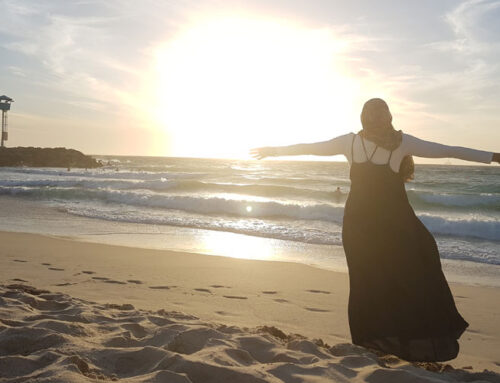These are my own reflections and opinions and every parent sees things differently. In saying that I hope some of the points may help assist us all to make fewer mistakes as parents and provide a stable, solid, positive base for the upbringing of our children. Ameen!
Ten mistakes parents make with their boys
I write this as a reflection on parenting with four boys! Ten mistakes parents make with their children (in no particular order)
- Using too many negative words or phrases. Words have a very powerful effect on the mindset. Think for a second of the words that you repeat to yourself, what comes to your head when you’re sad or angry. Sadly a lot of children have grown up with some form of emotional abuses- words that hurt their self-image or perception of themselves. As parents, we really need to fill our child’s “bucket” so to say, with as many positive affirmations that will build them up to walk out into a strange world. Words hurt. Beliefs are carried into adulthood. Reflection if your words are filling your child ‘love’ cup or ‘hurt’ cup.
- Having the personal expectation that is damaging to the growth of the child. Children are capable but they work with different time frames. What one of my sons did at eleven months, another only started at two! Childhood is not a competition to meet the next milestone! Be engaged, interested, loving, creative and you wont to able to STOP them from learning and being positive contributors to life. Put God first, trust in Him all the way, and throw away the high expectation or self-indulged beliefs of how a child “SHOULD” treat you, or should act, or should be. They were created for a very different time to your own upbringing. With that in mind, you are preparing your child for a world as a responsible, resilient adult, that neither parent may ever experience or understand. I am all for respect and good manners, but don’t screw the life or childhood out of a child or expect nothing of them that they feel what value do they bring to the earth.
- Not being flexible. Being too hard. My pet hate when a parent comes down hard or belittling to a child, yet they wouldn’t use the same approach to others. Not allowing for the individual needs of the child or pushing them so hard in a task that they need up in tears or resenting the process. It’s not about the end result, it’s about the process. I am big on dedication and persistence despite a task being hard, but I am also level-headed enough to see when a child has had enough or needs a break. Respect them will only earn you respect. This can create negative self-beliefs if they feel they “cant do it”, to a task or requirement. Native self-beliefs sabotage a child in their future endurance. Dear mothers, I want to introduce you to a basic understanding of where negative beliefs come from. From childhood, many of our beliefs are formed in early years from what we see, hear and experience. At that time our critical thinking skills are not intact and we don’t question the “mind programming” that takes place, often by adults with good intentions.Children are very receptive between during these ages when their right brains are active and their left brains (before nine/ten years) – which includes critical thinking – are not yet fully functional. It is during those formative years that subconscious mind programming naturally occurs. It is how people take on limiting beliefs that sabotage their success, including the hurtful words of a tired parent or those of an educator or teacher who lost their patience.
So for example, a kid who grows up in a household where parents repeated something along the lines of “If you don’t get good grades in school, you’ll never have a good job”, may grow up with the unconscious belief that they are not capable of having a great job or doesn’t deserve one because they didn’t do well in school. They can then see themselves as a failing, so, in turn, hold themselves back or play small, as their brain holds these beliefs sometimes without realizing.
- Too controlling. I notice most of the problems that arise in families is the need for the parents to control or have too much input into their child’s life, even when they hit adulthood. Now don’t get me wrong, everyone needs support, guidance and advice but each person has to make their own mind about what is best for them to do in their life, even if we think we know best. Just because we care for a child, regardless of their age, and especially so as they get older, doesn’t mean we can dictate to them how they should live their life..
- No balance in parenting. Affection and loving, yet have rules and appropriate consequences. Some parents are too hard, other lack of consequences, teaching their children little responsibility. Allow some free choice. Allow children to make choices in life where possible, but be there for guidance and supervision. And don’t play favourites! We need to teach our children accountability of their actions and provide healthy boundaries to guide them to moral upright individuals that contribute and support themselves and others.
- Keep up the communication from birth. Children own self- reflection on their own learning and thinking is important for good emotional intelligence. The benefits of sounds emotional intelligence in today’s visual world are crucial, as it is a skill a lot of adults are not good at- the basis of good interpersonal relationships and communication with others throughout life. Through interaction with others, we learn about the world around us. Oh, the television and internet are not a significant part of your child’s life. Let me repeat that- if you make the tv or internet your child’s main communicator in the early childhood years, it will have the most powerful and enduring effect on them for life, affecting their brain development, health and well being in all negative ways(too much research to back this up!!!!)Don’t believe me, here is one source http://ww2.rch.org.au/emplibrary/ccch/PB_16_template_final_web.pdf
- Not having routine or boundaries. Time is precious. Teaching children from young to have some responsibility towards their time and how they use it. Parents need to teach and show a good example towards this. If our head is on a phone or iPad, then children will follow suit. We are the most powerful role models for a child life. Provide well planned out environment within the home and outside that meets the physical, human and organizational needs of the children. Ask yourself, does my home meet each of my children’s individual needs: physiological needs, safety and protection, love and belonging, self-esteem? Children are a trust and have certain needs and rights that is a must to fulfil, especially emotionally and spiritually.
- Children are an interruption. No they are not- we can’t fit in everything else and then get annoyed or frustrated when a child has a need or request. “Our idea of life might be interrupting our parenting, though. We want to be more than “just a mom,” but would more do our kids want from us? They are thrilled with us being “just a mom.” We look up to people who have dedicated their lives to their work, but yet we don’t look at parenthood the same way? That’s not fair.”It really is just about that mental shift. Rather than fitting in parenting in between my (usually self-imposed) tasks, my tasks fit in between my parenting. There will be years upon years where my kids will need little from me, in sha Allah, and I can’t rush it. I have to focus on the here and now. Focus on them, because they need me. They didn’t ask to be here. I wanted them and chose to have kids.
- Doing too much for them. Doing too much for our children can make them too dependent on other people for their needs. Teaching our children how to be more independent and helpful as they become older is a way that they are going to learn how to become their own person. It hinders their development and self-image, as they are unable to do the most basic of a task. Children who are surrounded by the optimistic language, language that encourages thinking and decision-making, have the opportunity to become resilient when managing setbacks and challenges. They are much less likely to succumb to ‘learned helplessness’, where they expect adults to always be there to do things for them. When children are given opportunities or responsibilities that are age appropriate, they can do a lot of learning and feel capable, giving a positive self-image. I especially my boys to help in some way, so they value the importance of helping each other in a family unit and that they can achieve anything they put their mind too.
- Providing an environment of disconnection. Have some natural connection to nature and outdoors. A study conducted by Frances E Kup, PhD and Andrea Faber Taylor, PhD, found that exposing children with ADHD to “green outdoor activities” reduces symptoms significantly. Even with adults who have focus issues can experience the benefits. Children by nature, like to experiment, change things and explore. Being a parent means focusing on the here and now as much as we can before they grow up and are out of our hands. Live an interesting life. You are interpreting the world to your child. Is it fascinating to you? Are you engaged in creating, in thinking, in knowing different people, in teaching new skills, in beach walks, in travel, in play/outdoor games/sports, in eye-opening, min opening experiences? Children should be encouraged to respect, care for and appreciate the natural environment.







Leave A Comment
You must be logged in to post a comment.